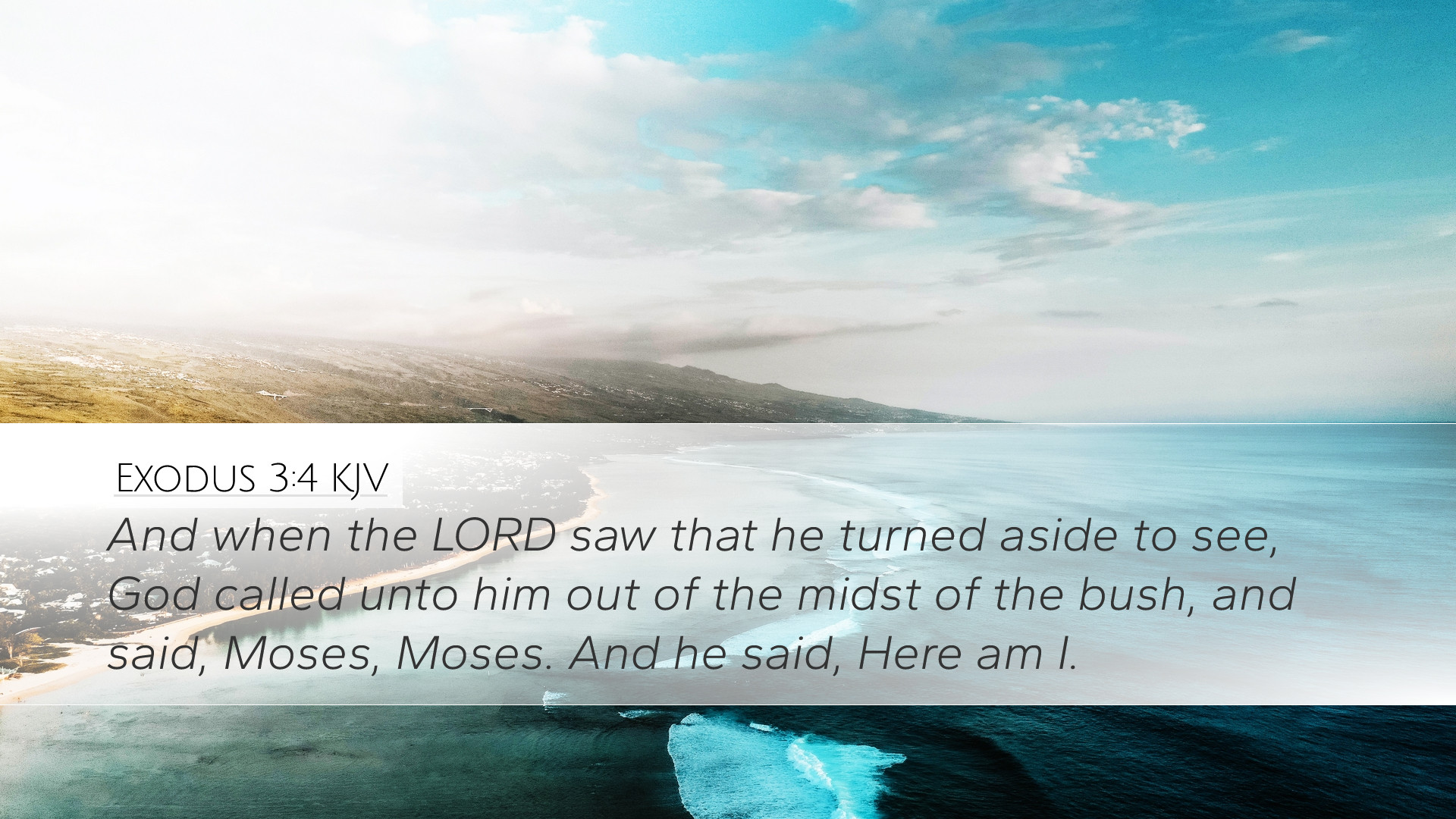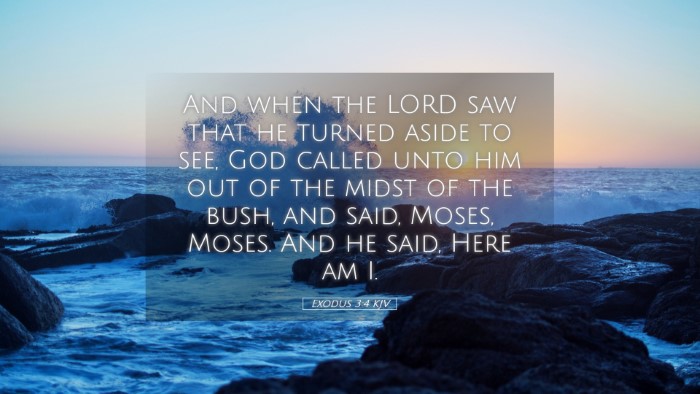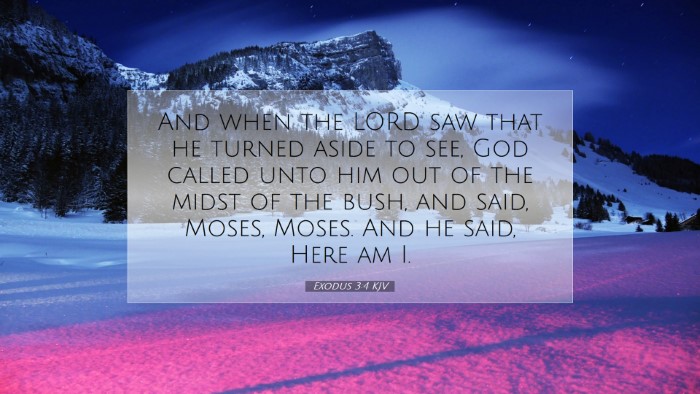Commentary on Exodus 3:4
Text of Exodus 3:4: "And when the LORD saw that he turned aside to see, God called unto him out of the midst of the bush, and said, Moses, Moses. And he said, Here am I."
Introduction
Exodus 3:4 marks a pivotal moment in biblical history, where God initiates a personal call to Moses. This moment is significant not only for Moses but also for the entire Israelite community. The various commentaries provide profound insights into the nature of divine calling, the importance of attentiveness to God’s voice, and the implications of God’s self-revelation.
The Significance of God's Call
The act of God calling Moses by name demonstrates a personal relationship between the Creator and His chosen servant. This reflects the intimacy of God's care and the special purpose He has for Moses. As Matthew Henry notes:
"God does not call men without a significant purpose; when He speaks, it is to direct, to encourage, or to commission."
God's Attention to Human Response
In the text, "when the LORD saw that he turned aside to see," we observe God's response to Moses' curiosity. Albert Barnes points out:
"God does not speak to those who are indifferent. The act of turning aside signifies a desire to know God, which invites divine interaction."
Attentiveness to the Divine
This attentiveness requires an intentional act of the will. Adam Clarke elaborates on this idea:
"Moses's response—turning aside to investigate—demonstrates that God often moves in the ordinary moments of life, but it is up to us to notice and respond."
The Nature of Divine Revelation
The burning bush represents a significant symbol of God’s presence. It illustrates how God's holiness is intertwined with His communication. As noted by Matthew Henry:
"The bush burning but not consumed signifies God's eternal nature and His unchanging holiness."
God's Holiness and Human Response
When God reveals Himself, the appropriate response is reverence. In the subsequent verses, Moses is instructed to remove his sandals, indicating the sacredness of the ground. Albert Barnes emphasizes:
"Approaching God's presence requires acknowledgment of His holiness and our unworthiness. It is through such recognition that we enter into communion with Him."
Understanding God’s Name
In the context of God’s self-revelation, Exodus 3:4 sets the stage for understanding God's name as revealed in the subsequent verses. Clarke remarks:
"The name by which God reveals Himself is significant. It provides insight into His character, which is foundational for understanding His covenant with Israel."
The Implications for Leadership
God's call to Moses is also a profound moment for understanding leadership in God's kingdom. Moses is called not just for himself but as a mediator for the Israelites. As highlighted by Barnes:
"Divine calling often entails responsibility towards others. Moses must understand that his personal encounter with God also entails a mission for liberation."
Equipped for the Task
Moses' immediate response, "Here am I," signifies readiness, yet this will be tested throughout his subsequent dialogues with God. Henry stresses:
"True readiness may sometimes be accompanied by fear or doubt, which does not negate the call. God's enabling follows His calling."
Exploring Personal Callings
This narrative not only applies to Moses but serves as an ongoing reminder to all believers of their unique callings. Clarke notes:
"Every believer is called to serve. The experience of Moses serves as a model for recognizing and responding to God's unique direction in our lives."
Conclusion
Exodus 3:4 presents a rich tapestry of themes related to divine calling, the nature of God, and the responsibilities of leadership. The combined insights from public domain commentaries reveal a multi-faceted understanding of this scripture. It encourages readers to remain attentive to God's voice, recognize His holiness, and to respond affirmatively to His call—both for themselves and on behalf of others.


